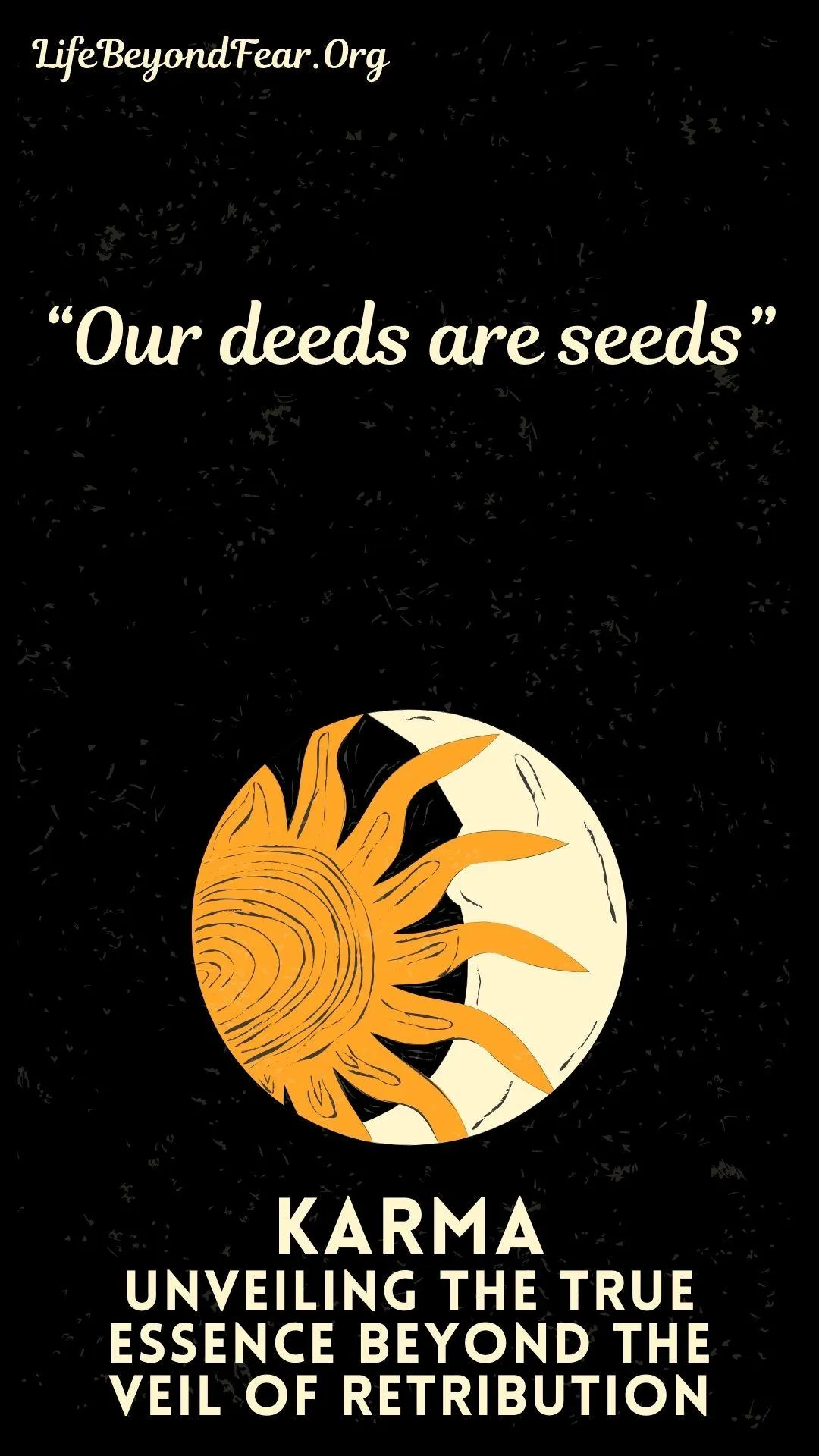There’s a whole world out there
See Newest Blogs

Karma
Karma: Unveiling the True Essence Beyond the Veil of Retribution
Most of us have encountered the term karma—often uttered in moments of frustration or as a warning to those who've wronged us.
But what does karma genuinely represent, and what are the consequences of perceiving it as a form of punishment?
Let's dive deeply into this concept, exploring how we can view karma in its true light, free from a covertly violent mindset.

Understanding Karma: The Basics
In its essence, karma is a foundational concept in several Eastern philosophies and religions such as Hinduism and Buddhism. It is the law of moral causation, reflecting the idea that our actions and intentions have corresponding reactions that may manifest over time. Karma is not a vengeful cosmic force but a natural principle emphasising accountability and growth.
The Downside of Punitive Karma Beliefs
When people adopt the belief in a punishing karma—where wrongdoers are fated to suffer—there's a subtle transformation of karma into a tool of vengeance, albeit masked by spiritual decorum. This viewpoint harbours several downsides:
- Negative Emotion Cultivation: Wishing harm on another under the guise of karma perpetuates feelings of anger and resentment, which can be emotionally corrosive over time.
- Stagnation in Personal Growth: Focusing on an individual's potential punishment rather than one's own responses and actions can hinder personal evolution and learning.
- Misinterpretation of Universal Laws: It distorts the original teachings of karma, which emphasise learning and growth rather than punishment.
Covert Violence: The Karma Misquote
The phrase, "Karma is going to get you," is often a masked form of emotional aggression. It subtly expresses hostility while feigning a spiritual righteousness. Such expressions may fulfill the immediate desire for justice or retribution but ultimately keep us bound to negative emotions, detracting from an enlightened mindset.
Moving Towards a True Understanding
To embrace karma in its purest form, consider the following approaches:
- Reflective Awareness: Engage in self-reflection to understand your motives and cultivate actions rooted in kindness and compassion rather than retribution.
- Empathy and Understanding: Foster a mindset that prioritises empathy, seeking to understand others' perspectives rather than wishing harm upon them.
- Commitment to Positive Change: Focus on how you can positively affect your life and those around you, leveraging karma as a guiding principle for ethical living.
A Final Thought
Karma serves as a mirror reflecting our intentions and actions, not a device for revenge. By adopting a compassionate interpretation of karma, we can begin to cultivate a world filled with understanding and growth rather than resentment and retribution.
Reflection
In what ways can shifting your perception of karma from retribution to a journey of personal growth and accountability change the way you respond to challenges and conflicts in your life?
Reflecting on your past actions, how can you consciously cultivate positive karma in your daily interactions, and what impact might this have on your overall well-being and relationships?

Copyright ©LifeBeyondFear.Org. All Rights Reserved.
Unlock the secrets to improving relationships at work, at home, and most importantly, with yourself. Discover the transformative power of meaningful connections and self-understanding.
